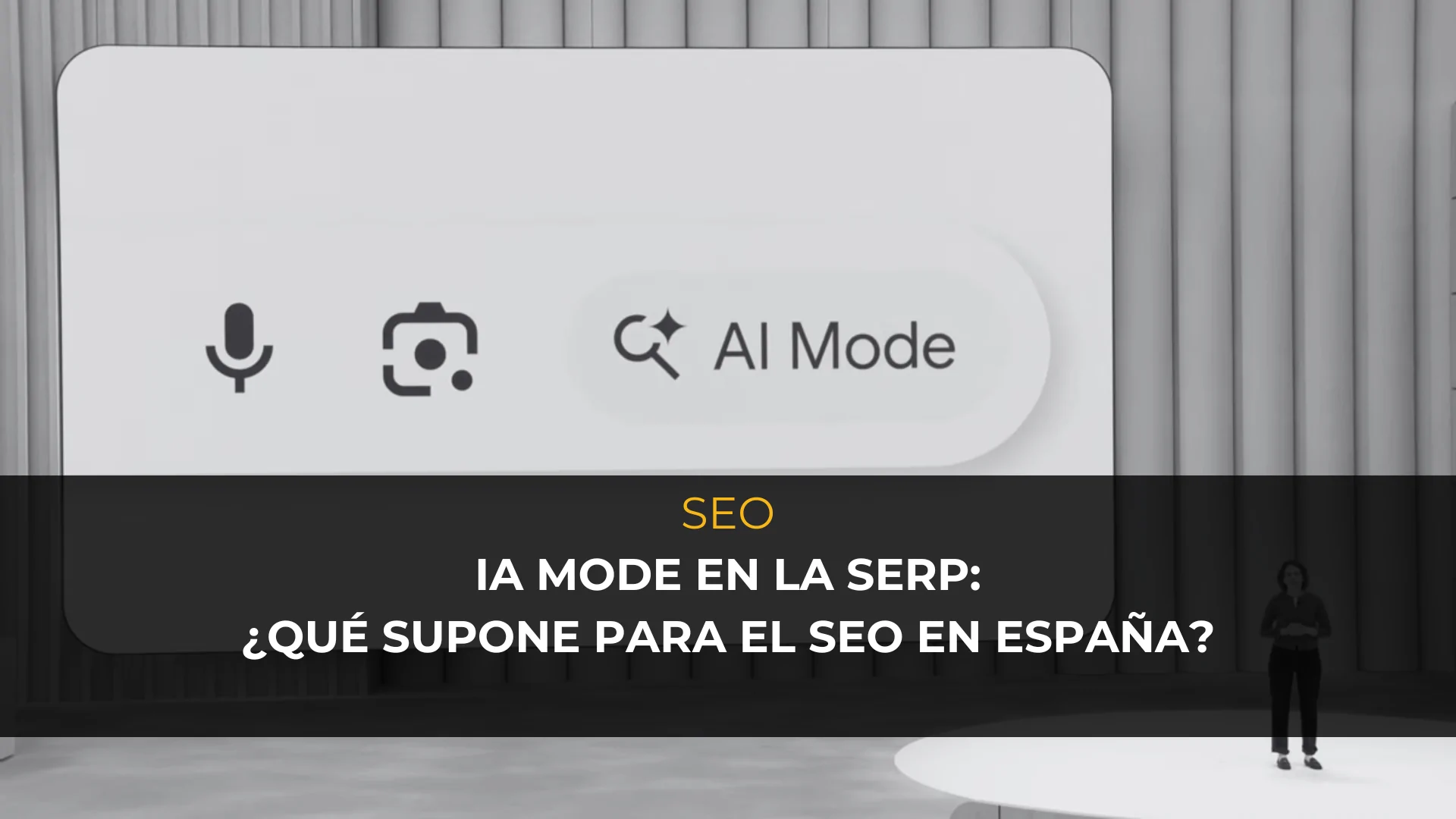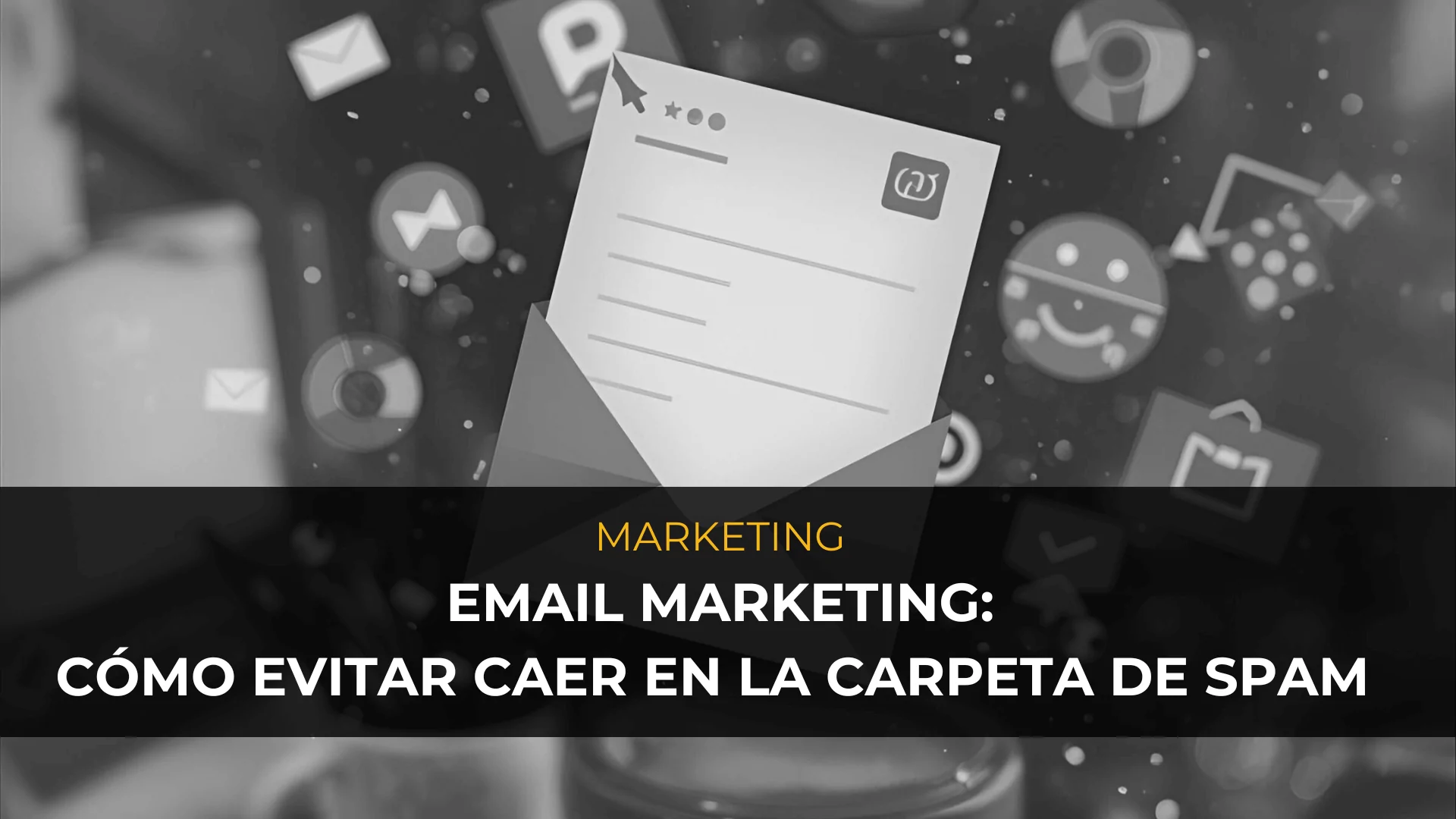AI Max is a new Google beta designed to boost our classic search campaigns thanks to artificial intelligence in order to maximize their reach, the relevance of our ads and all this in a highly automated way.
In this post we tell you how to AI Max, Google's new beta, automate your search campaigns with artificial intelligence: personalized ads, without keywords and with more control over the search terms.
How do the new AI Max campaigns work?
Its operation and configuration is very simple, since Google's AI does all the heavy lifting for you by us: from the definition of keywords to the creation of titles, descriptions or extensions, since all this is done automatically and in real time based on the information that the AI extracts from our website.
In this way, each user receives a personalized ad based on his or her queryThis increases the probabilities of converting on our website. In addition (and this is a novelty...) all this comes with some control and transparency, since we will be able to see (and negative) the search terms that activate our ads.
What is automated in an AI Max?
In AI Max there are no keywords. Based on our website, the algorithm decides whether a search is relevant to us and whether or not to show the user advertising, similar to how DSA campaigns used to work.
If so, the technology will take care of creating a fully automatic advertisement with titles, descriptions and other search-relevant resources. It will also decide which is the most appropriate destination URL for the search.
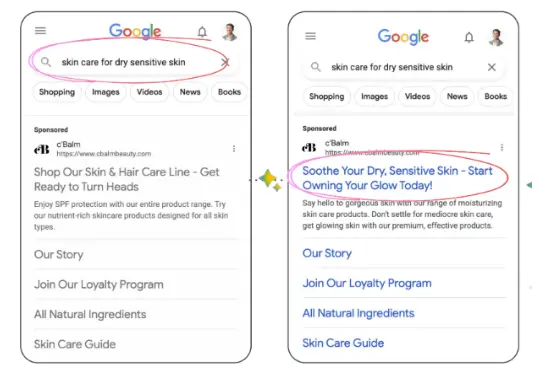
Of course, the bids in each auction are also determined automatically, as these campaigns work exclusively with Smart Bidding technology.
Can an AI Max Campaign coexist with a search campaign?
Yes, in fact in most accounts the option to create an AI Max from scratch has not yet been unlocked. For the time being, AI Max is a extra that is displayed when creating a new normal Search campaign or an option that can be activated in the search campaigns already created.
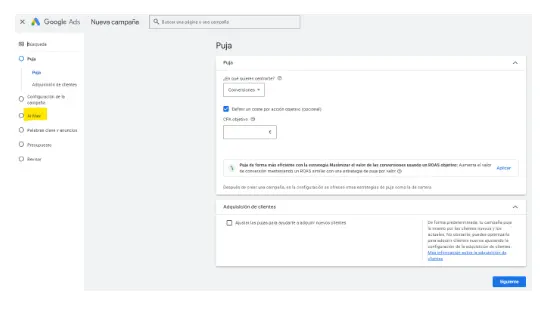
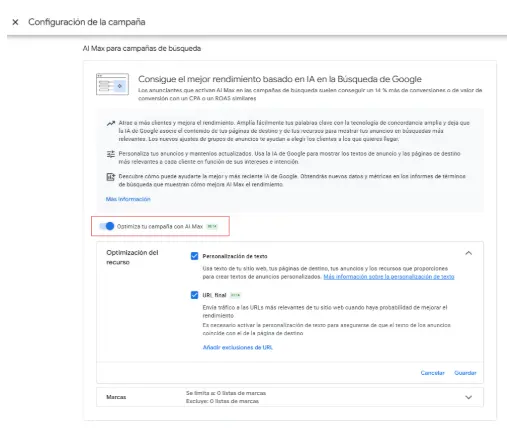
So, in these cases, we will have campaigns that work both in a normal way and also in an optimized way. From the search terms of the campaign we will be able to see which ones are attributable to the original keywords of the campaign and which ones thanks to the push of AI Max.
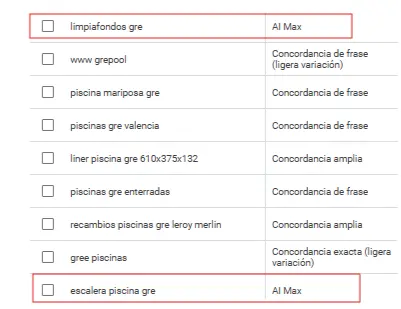
In the same way also we can see the destination URLs of the ads and which ones have been introduced by us and which ones have been selected by AI Max.

At the moment, however, it is not possible to see which ads Google's AI generates... we hope that this functionality will be unlocked soon because it seems relevant to us to have some control or at least information about the copys that are shown to users.
AI Max configuration options for "narrowing" the scope of a search campaign
We mentioned earlier that AI Max was in charge of automatically creating titles and descriptions to show users the most relevant ads possible. However, this is optional and we can enable or disable it from the campaign settings. Without data on what those ads are like it is difficult to make that decision, but to us it seems logical to have it active because otherwise the ads that are shown may not make sense for the search that the user has performed.
Also we can exclude URLs from our website where we do not want the AI to send users to. In the old DSA campaigns, for example, blog posts was a clear example of URLs to exclude. At the moment we haven't seen blog URLs in the AI Max results, but we'll keep an eye out in case it starts to happen.
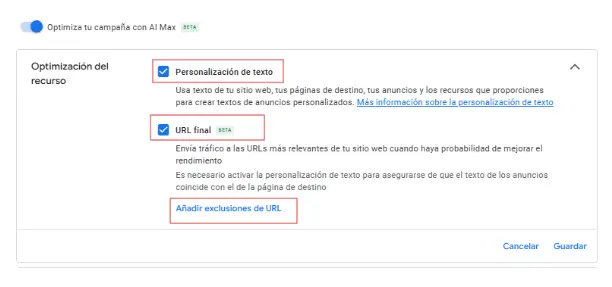
Another option we have to "control" the operation of these campaigns is to negating search terms that we consider are not relevant. We can do this whether the search terms are derived from our keywords or from searches that have been triggered by the AI.
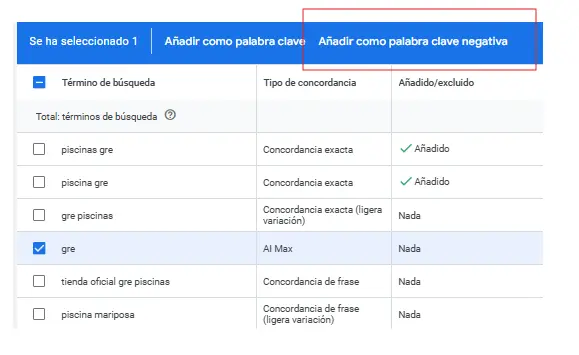
Another very interesting possibility is that of include/exclude terms branded in searches. We can tell the system that we only want to appear in searches related to certain brands or the opposite, that we do not want to do so.
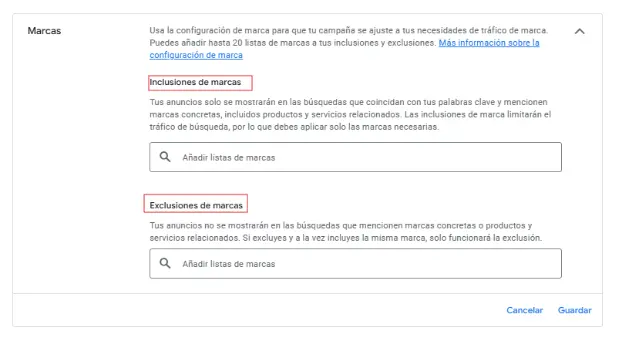
Our experience to date with AI Max Campaigns
We have been testing this type of campaign for a couple of months, although we still do not have a definitive opinion on its usefulness. The search terms triggered by the AI do not differ much from those obtained with broad matching.and the old DSA campaigns already worked without keywords and automated titles and destination URLs.
Therefore, from our point of view, the new AI Max represent above all a way of simplifying structureThe new campaign and ad group unify classic and new functionalities into a single campaign and ad group.
On the other hand, Performance Max campaigns already allow, through the incorporation of resources, the creation of search ads that - like AI Max - can be used for the creation of search ads. do not need keywords to work.
Although the configuration and adjustment options differ in each case, in the Search Network both campaigns behave very similarly. In fact, at Geotelecom we have been using PMax for some time now only with resources (without shopping cards) to work with Search, obtaining very positive results.
AI Max campaigns come as an evolution of the classic search campaigns, incorporating the AI automation to simplify structures, broaden scope and reduce the workload of account managers.
Although they share great similarity with the DSA and, in many respects, with the Performance Max, its main added value is the possibility of combining traditional resources and new functionalities in the same type of campaign. driven by artificial intelligence.
It is still too early to clearly measure its impact, but everything points to the fact that AI Max will become an interesting feature for those who are reluctant to dispense with classic "search" campaigns, but want to give them a new impetus.
Are you interested in keeping up to date with the latest news from Google Ads? Visit our blog and discover the latest trends, smart strategies and everything you need to keep your campaigns optimized.

